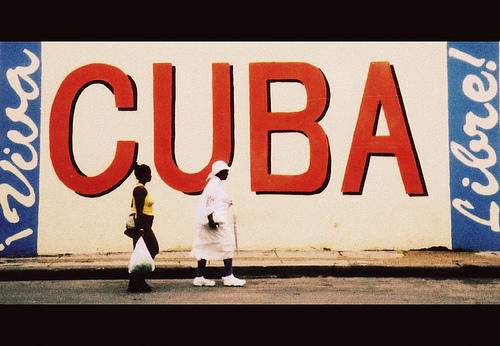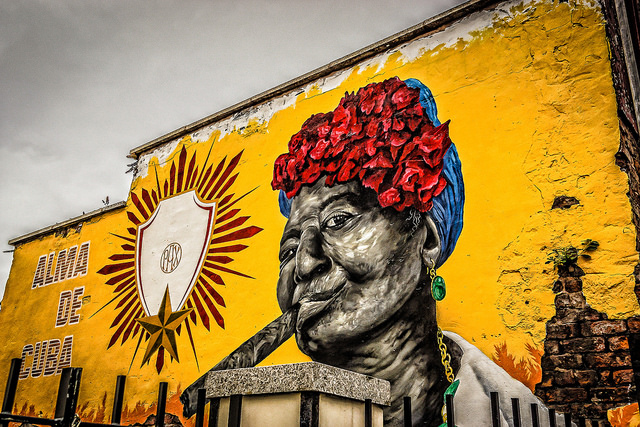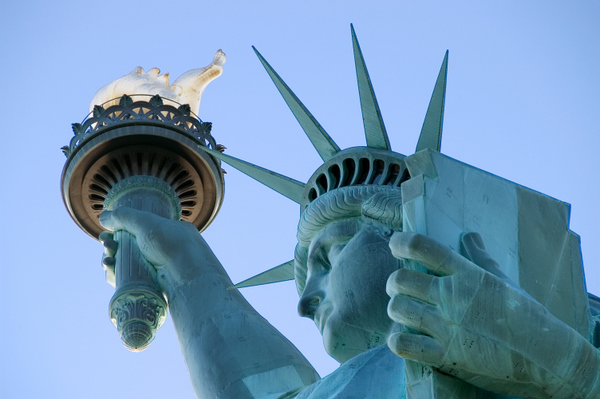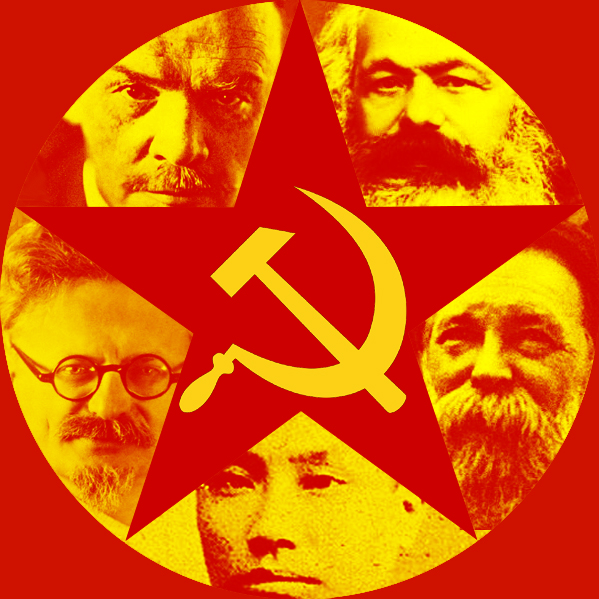Opinion
Mariel Harbor: Road to Change in Cuba’s Communism

Photo by flickr/Doug88888
Talking about communist countries, Cuba comes to the mind first. Compared to China and Vietnam, communist countries that have undergone big reforms, Cuba has remained a strict communist country. While strongest republics like Soviet Union did not survive, Cuba has survived even when its location is so close to the US.
Looking at the pictures or walking on a street in the island nation, still gives the sense of being in a true communist land, which has not changed much over the years. Posters of Che Guevara are still dominating the walls, mid-century American cars plying on the road and communist party governing the people and economy.
In 1991, Soviet President Mikhail Gorbachev announced in Moscow with U.S. Secretary of State James Baker that Soviet Union would eradicate its multibillion-dollar annual subsidy to Cuba. Soon there were hopes that Cuba will see a pro-western revolution, like those in East European countries in 1989, and throw the communist government for a pro capitalist system. Nothing of that sort happened, but gradually Cuba did actually choose a path of change.
“We reform, or we sink,” said Raúl Castro in a national address in 2010. In the same year, he surprised everyone and created a media buzz by telling an American journalist, “The Cuban model doesn’t even work for us anymore.” So where is Cuba heading now?
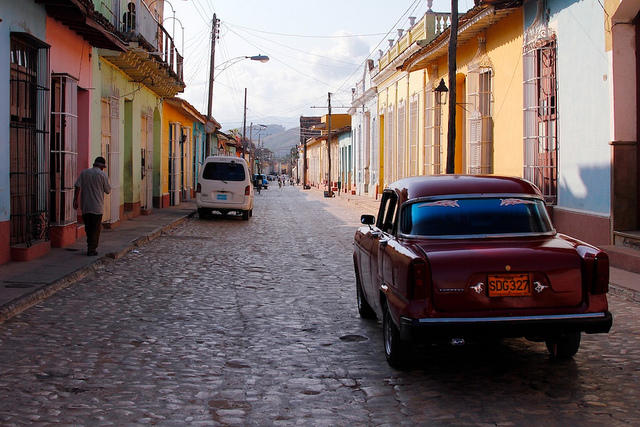
Photo by flickr/Doug88888
Cuba and Mariel Harbor: One Country, two systems.
The model is not new, and draws its inspiration from China. Despite being a communist country, China’s successful economic model has made it world’s second largest economy. Cuba is relying on the same concept and is building a Chinese style special economic zone, 30 miles west of capital Havana, on the banks of Mariel Bay. This will include refurbishing of Mariel Harbor, with the help of Brazilian capital led by the Brazilian conglomerate Odebrecht, with support from the Brazilian National Development Bank. The work has already started and the expectations are to complete on schedule, in January 2014, when it will start acting as the major container shipping port of the region.
The port is strategically situated to handle trade on the route between US, Europe and Panama Canal. The port is designed keeping in mind the enormous traffic this region is going to see after the expansion of Panama Canal is completed in summer next year. Once US lifts the embargo, we can see some long-term benefits of this port. Apart from helping in the refurbishing of the Mariel Harbor, Brazil is also helping Cuba economically to renovate and expand operations of five airports throughout the island.
The special economic zone is itself going to be a 180 square miles big stretch that will be immune from laws of Marxism. Cuba is expecting to invite foreign companies to invest, set up manufacturing plants, research and operational centres.
Why Would Investors Risk Their Money in Communist Cuba?
When there is China, India and new favourite destinations like South East Asia and East Europe, then why would someone especially from a capitalist country risk their money by investing in a strict communist country? The reason behind the cold relations between US and Cuba is not economic and political ideology with which these countries differ, but nationalization of billion dollar worth foreign assets mainly from US after Fidel Castro’s 1959 revolution.
Cuba’s Foreign Trade and Investment Minister Rodrigo Malmierca has assured on behalf of Cuban communist leaders that this special economic zone will be free from any communist ideology and properties within this 180 square mile area cannot be expropriated. In addition to that, the communist government of Cuba is offering investors 100% ownership of their business, 50 years contract, duty free imports and no tax for the first 10 years for doing business on the island.
Cuba’s ideological allies: China and Vietnam along with Cuba’s natural friend: Latin America and Russia have expressed interest in contributing to this economic zone. Cuba has also received positive response from Spain, Japan and Germany.
China’s export dominated market is finding Cuba an exceptional place for taking its business and trade with western hemisphere to a new level.
“The Chinese companies that today produce in China and bring their goods here could produce here in Cuba, in this special zone … with many incentives,” Rodrigo Malmierca told China’s Xinhua news agency. He further added, “by setting up their operations in the special zone, Chinese companies would be well-positioned to supply the rest of Caribbean, Central America and Mexico.”
There is no doubt China can trust Cuba more than any other country in the west. While there are governments and economies in this world resisting Chinese aggression, Cuba will be delighted to gain investments from an inspirational communist partner.
With these new efforts by Raúl Castro, we need to see how far Cuba is able to make it. There are doubts that investors will see Cuba as an attractive site for establishing manufacturing plants and make it an export hub. It is because Cuba does not have that much skilled and experienced force in the field of assembly plants, electronics and computers. On the other hand, Dominican Republic offer lower labour costs and experience in manufacturing. Sophisticated industries that can change the entire scenario in Cuba like information technology, electronics and computers engineering, biotechnology and heavy machinery may not come immediately.
On the other hand, Cuba is a good source of doctors and provides doctors to Venezuela and now Brazil. Many analysts agree that the new Cuban special economic zone may be soon rolling out medical devices and pharmaceuticals that could interest foreign investors. In addition, we should not forget Cuban cigars and rum enjoys popularity all over the world, though few have tried them.
China
Nepal Hindu Rashtra: Time to Wrap Up Communism?

Nepal abolished the Constitutional Monarchy in May 2008 and declared itself as a Federal Democratic Republic. There was a new hope in Nepal as it was becoming world’s newest democracy even though it had dissolved the Hindu Rashtra. However, the democracy in Nepal immediately got into the tight grips of leftists and communists backed by China. It has been almost 12 years since monarchy was abolished in Nepal. Interestingly, the Himalayan country has already seen 11 Prime Ministers in this period. Thus, leaving the Nepalese people still yearning for good and stable governance.
Re-establish Hindu Rashtra
As the political instability is growing in Nepal, people are demonstrating concerns about the future of the country. In fact, Nepalese citizens are unhappy with frequent interference by China and India influencing its unstable communist regime. More voices are now growing in support of reinstating the Monarchy and declaring Nepal as world’s only Hindu Rashtra (which by default offers full religious freedom to other religious minorities as per Hindutva concept of Sarva Dharma Sama Bhava – all paths lead to one).
Former Deputy Prime Minister of Nepal, Kamal Thapa said that if political parties do not recognize the seriousness of reinstating the monarchy, then the country will head for a period of darkness. “Recently, we’ve had high-ranking officials from India and China come to Nepal to try and solve problems within the ruling party,” he said. “We cannot let others dictate what we want to do.”
Communist Party All Set to Suppress Protests, By Force
Kamal Thapa has firmly demanded an all party meet to discuss reinstating of monarchy. Throughout the month of December, 2020 Nepal has seen anti communism protests across the country in support of reinstating the monarchy and Hindu Rashtra. Most importantly, the demand has become a nationwide mass people’s movement. So much so that the communist regime had to send a directive to 77 districts in 7 provinces. The directive suggests suppressing the protests by force. Nevertheless, Rashtriya Prajatantra Party and other royalist groups have ignored this threat from the communist regime. Protester groups have pledged to strengthen the protest in the coming weeks.
Nepal: Demonstration held in capital Kathmandu, demanding restoration of monarchy in the country. pic.twitter.com/TFjmKu9U9Z
— ANI (@ANI) December 5, 2020
Role of China – Hope for Communism in Nepal
China’s ambassador to Nepal is known to have very close relationship with Nepalese Communist regime. In fact, She has been super effective in tilting Nepal’s posture towards its ideological partner, China. One of her greatest achievements in 2020 was artificially manufacturing a border conflict between Nepal and India. Consequently, souring relations between the two Hindu majority nations. In addition, she managed to silence Nepal’s communist government after China took one of Nepal’s border villages under its control. However, recent political turmoil in Nepal and a renewed demand for reinstating of Hindu Monarchy is showing that the situation is now out of Chinese hands
Role of India
Year 2020, was not a good year for India and Nepal relations. India was busy in controlling domestic Covid cases. On the other hand, China had launched an invasive campaign into Indian territory. In addition, India is always busy with Pakistan on its western borders. However, the surprise came to India when China was almost successful in creating a new border tension between India and Nepal.
Those who do not know about Indian government should note that the current ruling party in India finds itself ideologically opposite to communism. This further creates differences between the two countries.
Communist party in Nepal has blamed India for supporting the ongoing anti communism protests in Nepal. However, former advisor to Nepal’s PM has suggested there is no proof that India is fueling pro Monarchy, anti communism demand in Nepal.
Nevertheless, There are certain influencers in India who have, in their personal capacity, expressed support for reinstating the Hindu monarchy. Yogi Adityanath, who is the Chief Minister of an Indian state bordering Nepal, said in 2015 that Nepal should declare itself a Hindu Monarchy. Readers should note that in 2015 Yogi Adityanath was not the Chief Minister yet. However, today he is not only popular in south of Nepal, his popularity is growing in Nepal as well.
Will The World See the first Hindu Rashtra?
It is difficult to answer this question at this moment. However, Nepalese communist government could not resolve the political instability and in December 2020 Nepalese government dissolved the parliament. Nepal will see next elections in April – May 2021. Hopefully, the world will see Nepal’s 12th Prime Minister in 13 years or may be a Hindu King? Royalists and protester groups have expressed confidence in winning next elections. We have our eyes on Nepal for updates.
Opinion
America’s Justice System – The Need For Reform
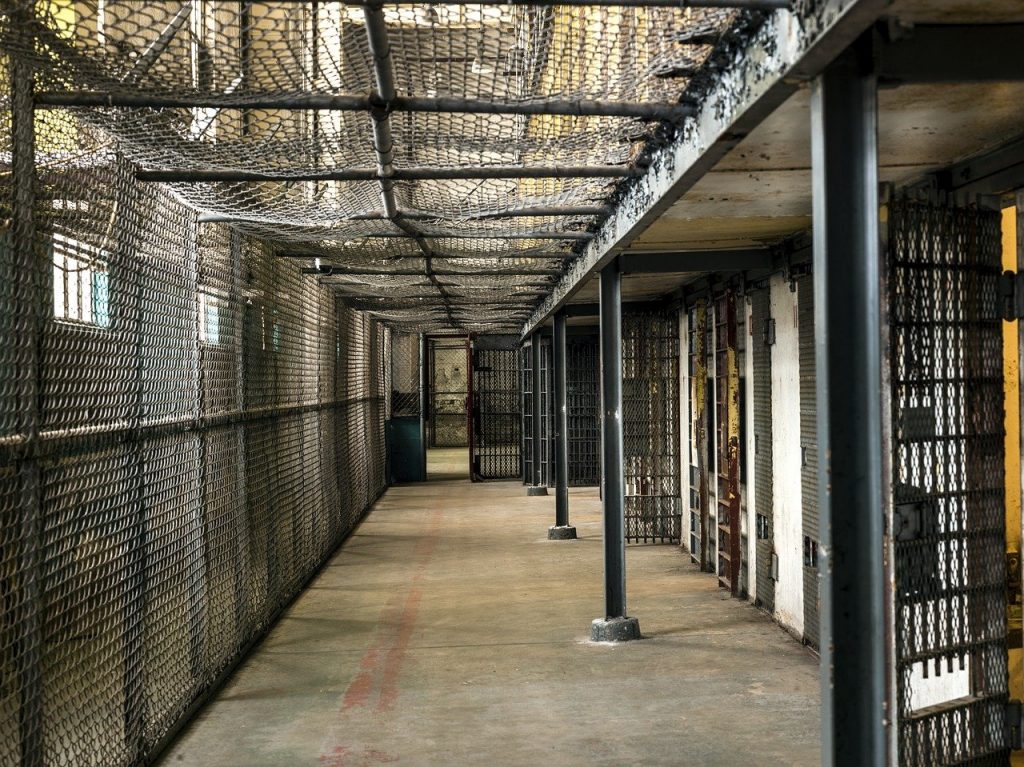
A recent poll by the National Opinion Research Centre revealed that 95% of Americans favour vital criminal justice reforms. This is hardly surprising, given that several people of varying racial, partisan and ideological dispositions have called out the justice system over its many failures throughout the years. Most Americans received the Trump Administration’s First Step Act as a step in the right direction, as about 60% of people approved the criminal justice reform bill according to a 2018 poll. However, many people still believe the justice system’s approach to crime is ineffective and needs dire change, and these are some reasons why.
Prison population and funding concerns
Research conducted revealed America has about 2.3 million prisoners, making the US the country with the highest incarceration rate globally. Experts estimate that the country’s prison population has grown by a whopping 340% over the past three decades; new prisoner admissions into jails are higher than prisoner release numbers. The cost of maintaining the nation’s prisons at taxpayers’ expense has inspired a lot of backlash and calls for budget cuts. According to research, slashed correction spending was the preferred option by most states to balance their budgets and redirect spending to other areas.
Minimum mandatory sentences
Minimum mandatory sentences are statutes that force judges to give defendants convicted of a crime the minimum prison sentence. Mandatory sentences rob judges of the traditional way of considering the defendant’s character and the unique circumstances surrounding offences. Even when represented by criminal defense attorneys with many years’ experience, defendants often succumb to prosecutors’ pressure to plead guilty or face more severe charges with higher mandatory sentences. The guilty plea bargain consequently resolves about 95% of both federal and state court cases. Research also shows that about half of inmates in federal prisons are doing time for drug offences- causing overpopulation in the prison system.
Growing number of people killed by the police
An estimated 1000 civilians are killed by police officers annually in the US. The frequency of police brutality cases over the years requires immediate reform to the American justice system. Data suggests that the incidence of fatal police shootings is higher among African-Americans than any other ethnicity, inspiring movements like the ‘Black Lives Matter’ campaign to press on with protests for significant police etiquette reforms towards coloured minorities. The police force faces incessant accusations of racial profiling, indiscriminate use of power, and poor discretion, which has led a reported 58% of Americans to think policing needs major reforms through measures like better-trained officers, and wearing body cameras.
Evolving public opinion on crime
Research released by the Sentencing Project and The Justice Policy Institute reveals that more people in conservative states are embracing preventive, rehabilitative, and alternative sentencing options for non-violent offenders. Most Americans now view the prevention of crime as the most vital function of the justice system, as 77% of Americans think that focusing more on character education and after-school programs would be cost-effective by reducing the number of people going to jail. Almost two-thirds of Americans also believe in the need for lighter sentences with more useful, reformative programs in prisons that will benefit inmates upon release. Therefore, support for harsh penalties that harden criminals and make them a more significant menace when reintroduced into society has dwindled.
Opinion
The History Question: Is It Better to Remember or to Forget?
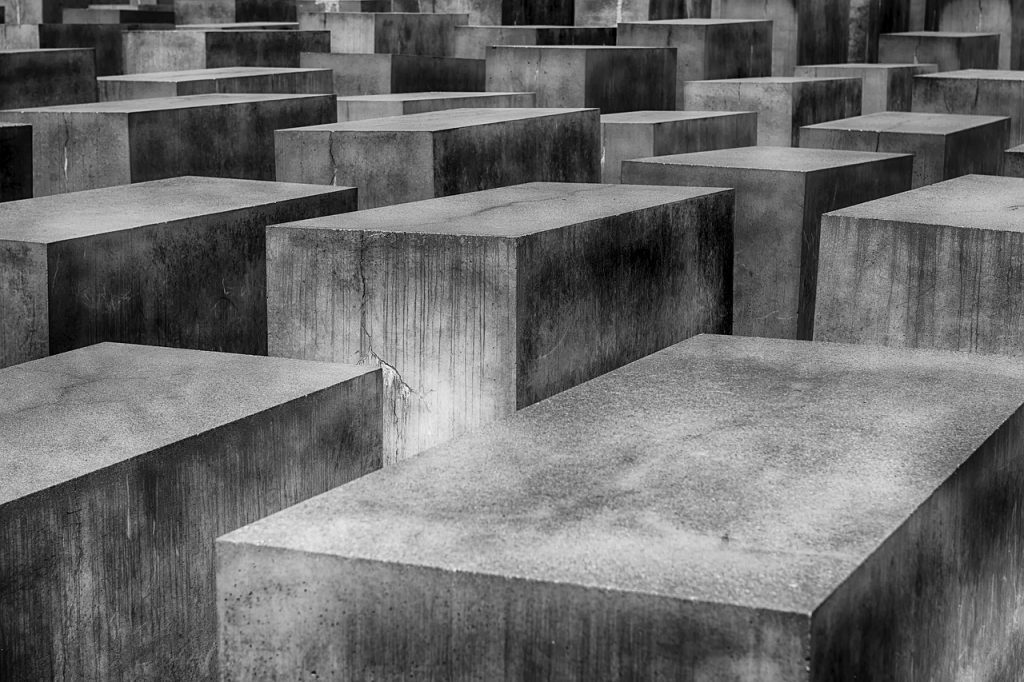
Years ago, a philosopher by the name of George Santayana said a phrase that fuels many debates to this day. His original saying is “those who cannot remember the past are condemned to repeat it”, although, many sources now present it as variations of “those who cannot learn from history are doomed to repeat it”. The latter definitely has more substance to it in the light of the ongoing debate about how much history we should be learning and how.
Is It Better to Remember or Forget About the Past?
On one hand, Santayana was right. Learning about the past is essential in order for people to progress. One also shouldn’t overlook the importance of remembrance and paying respects to the dead, both those who pushed the progress forward and those who have fallen victims to major tragedies that could and should have been averted.
The main argument in favor of learning about the past is that its knowledge is necessary for preventing the same thing happening in the future. Having it one can see the signs and stop the tragedy before it gains momentum.
That’s sound in theory, but the reality is always different. For example, today people are surely forgetting, and the much-critiqued education system is only partially at fault here. Even the greatest of tragedies weren’t spared this fate. It’s a proven fact that about two-thirds of millennials today don’t know about the Holocaust, and this number is surely greater for generations that follow them. In the school history course, the subject of one of the greatest disasters in history is barely touched, if touched at all. And outside of a history classroom, one can only see small, but terrifying, glimpses of it at the Holocaust Museum and other museums that rarely attract many visitors. And now we are witnessing a rise of antisemitic crime.
Are these two facts related? Does the lack of awareness about the horrors done in the name of Aryan supremacy contribute to the fact that right-winged extremists seem to be gaining popularity again?
It does, but by how much? That is the question that no one can truly answer.
And what about other genocides? The Holocaust had the highest death toll, but it was far from the only genocide in history. And quite a few of those happened after World War 2 and before the memory of the atrocities against the Jews began to fade. This means that while forgetting history is a factor, it’s not the deciding factor in its repeats.
But what is that thing responsible for the reenactment of past mistakes and tragedies?
Learning. This is the important thing that is most often overlooked when citing Santayana’s famous saying. It’s not enough to learn about the past and know the facts of things that happened. It’s important to learn from those facts and put in place protections that will prevent them from happening again. And this is something that humanity, as a whole, has yet to succeed in doing.
Dwelling in the Past Can Be Just As Bad
One also shouldn’t forget that there is such a thing as “too much history”. The Bosnian War and genocide that happened there in the 1990s is a vivid example of how the past can be exploited by political powers. Used as a part of propaganda, which fueled the war, history can become a weapon in the hands of those who want to use it for their own goals.
And this is what humans have been doing since the dawn of time. There is always someone who will use any means necessary to achieve whatever it is they wish. This results in wars and genocides, and hundreds of smaller but no less devastating tragedies.
Therefore, the problem isn’t whether people should be learning history but human nature itself. Perhaps, teaching this can help fix this fundamental flaw and truly stop the worst of the past from repeating.

